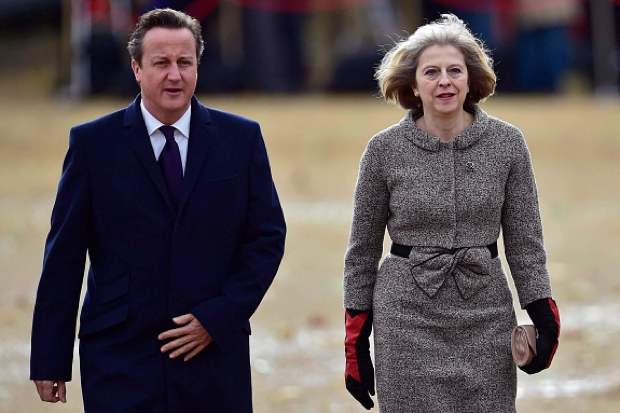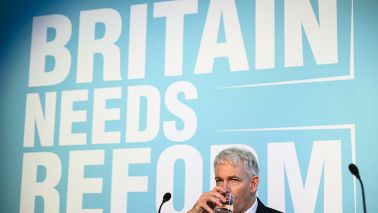So farewell, then, David Cameron. I suspect we’ll miss him when’s gone, but then he probably entered Downing Street 20 years too early, a product of a culture that fawns over youth and undervalues wisdom. At least Theresa May is a good decade older than him, although Kenneth Clarke, at 76, should have been considered for the role, entering as he is the prime of his political life.
After coming up with the great slogan of 2016, ‘Brits don’t quit’, Cameron then quit a few days later; his Tory arch-rival Boris Johnson then quit; Nigel Farage has quit, this time for good, followed by his deputy Paul Nuttall; Andrea Leadsom has quit; even Roy Hodgson and Chris Evans have quit. Jeremy Corbyn clings on, despite heavily losing a no confidence vote from his own parliamentary party, like a dinner guest who just won’t take the hint.
Throughout the horror show that has been this referendum campaign, the Labour party’s feuds have provided a welcome comic relief, like gravediggers in a Shakespeare play. Perhaps it’s not a comedy for long-standing Labour supporters, whose party has been ruined — ironically — by its failure to police its own borders (a lesson there, surely). I suppose one might become sad and sentimental about an old institution that has been ruined, but then I’ve never felt any sort of emotional attachment to political parties – in that sense I’m a true Tory.
In a survey a few years ago roughly three times as many people identified themselves as Labour supporters than Conservatives, despite the latter having as many votes over the past few decades. Being a Labour supporter is much more of a tribal identity, which is partly why you always see more red posters in people’s windows (it’s also considered more morally acceptable, of course). That’s also why, I suspect, Labour’s loss of its traditional supporters – heralded in the large vote for Leave in many Labour towns – will be lasting and bitter. Once people leave their church, whether for another faith or for none, they don’t tend to return.
In contrast, few Tories have much emotional attachment to the party, yet the party is looking remarkably resilient; I don’t particularly like Conservatives more than other people, and some wings of the movement I find pretty horrendous. I only rejoined so I could leave in disgust, but apart from getting to vote for the leader I’m not sure what benefits it brings; there’s no sense of righteousness or being part of the communion of social justice. I would have voted for Theresa May anyway, not because I’m from her section of the party, which I’m not, but because I think the Conservatives will be the least bad organisation to run the country, and I want them to win.
Ideological purity is all very well, but the whole point of the Tory Party is that it’s a coalition of liberals and conservatives who want to keep socialists and other radicals from power. When it comes down to it, and despite all the differences of opinion within the party, everyone recognises that it’s an uncomfortable coalition. Compare and contrast the increasingly frenzied way in which the Corbynites cling to power against the party’s interests, with the speed at which a potentially bitter May-Leadsom dispute was resolved with an apology and a gracious acceptance, culminating in Mrs Leadsom’s wise — indeed patriotic — decision to withdraw.
The Conservative Party is the oldest in Britain, and like the Catholic Church, it has a remarkable institutional instinct for survival. Who knows, if May successfully negotiates Britain’s transition to the Norway model, a compromise that will satisfy many moderate remainers and brexiteers, Tory division over Europe may even be brought to a close.







Comments